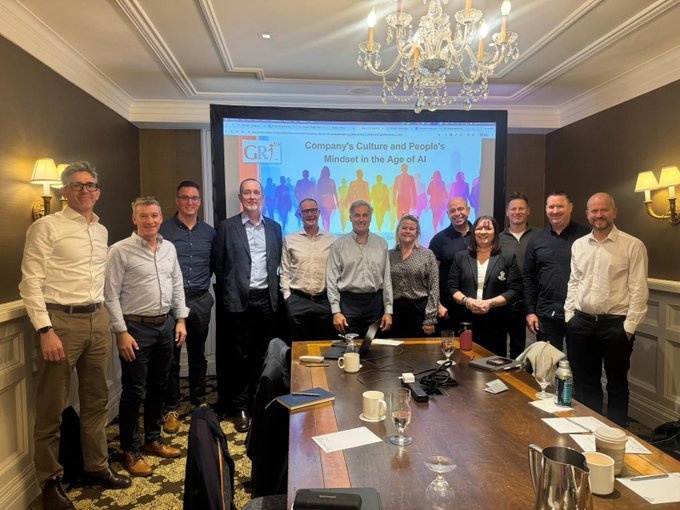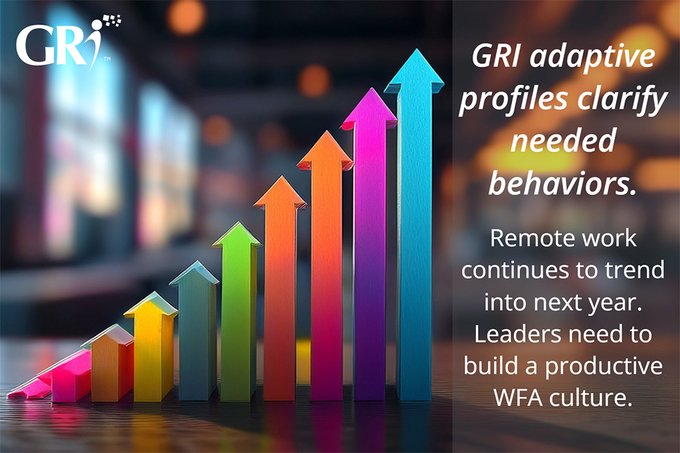Going Back to the Future with the Metaverse for Learning and Teamwork
Posted by Frederic Lucas-Conwell, Paula Lynn Danovsky
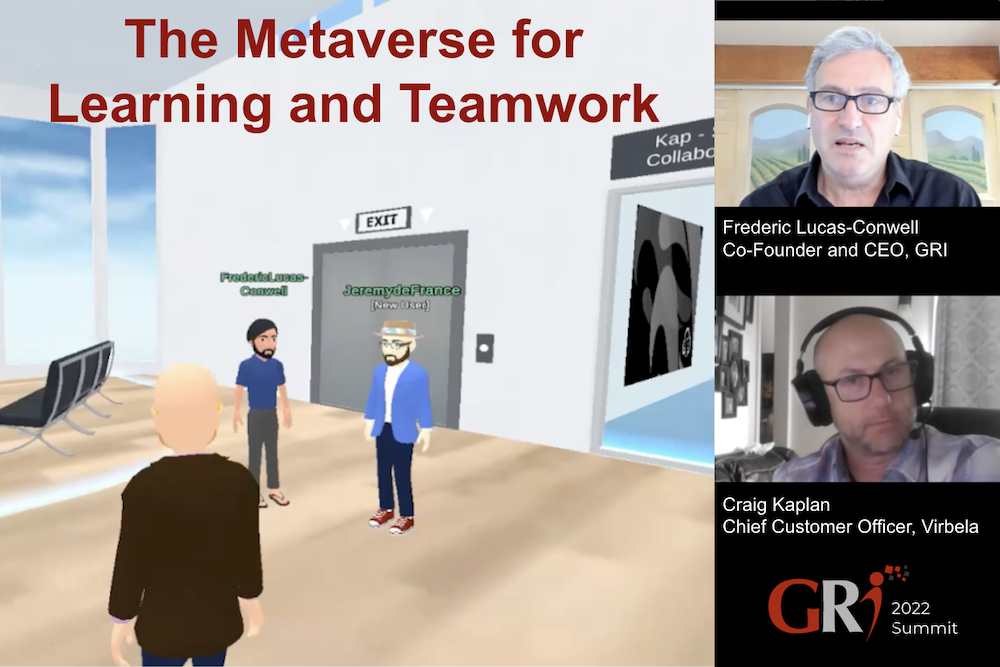
Going Back to the Future with the Metaverse for Learning and Teamwork
After navigating more than two years through a global pandemic, it’s easy to conclude that today there are many ways we can connect to move our organizational pursuits forward. Zoom, Google Meets, and Slack have become household names, and we’ve all learned a few tricks about how to use them. If you look it up, in fact, you will find entire books dedicated to understanding their nuances.
Usher in the metaverse …
Although not a new concept (think Second Life, circa 2003), the metaverse is a communications venue that exploded amid the throes of Covid-19 shutdowns. What is the metaverse, exactly? In business and enterprise, it’s a virtual reality space where you can create a persona and traverse online worlds built for collaborative purposes like jobs, events, education, and social gatherings.
“Roads? Where we’re going, we don’t need roads.” — Back to the Future, Part II.
Who would have imagined such a future? Maybe “Doc” Brown for sure. In the 80s smash-hit trilogy Back to the Future, this eccentric professor used his inventions to help high school student Marty McFly jump through time and alter events, assuring the course of Marty’s history. Not completely dissimilar, the metaverse is a way we can accelerate through changing times—flying cars or not.
GRI Hosts Virbela at GRI Summit 2022
In early May, GRI hosted its annual GRI Summit 2022, a two-day conference focused on how organizations can grow and enhance human capital. The first session entitled “The Metaverse for Learning and Teamwork” gave some valuable insights on how the metaverse is setting up to become a leading channel in business and enterprise. Distinctively different from video chats and online messaging tools, this platform gives users a live 3D experience, complete with audio and text messaging capabilities.
Craig Kaplan is the Chief Customer Officer for Virbela, a leading virtual reality company founded with a goal of providing “an immersive, virtual solution for the real-world challenges facing organizations, remote workers, and learners today.” Kaplan was the featured speaker at the first session of GRI Summit 2022. Virbela’s products include virtual private campuses and virtual team suites where companies and educational institutions can create spaces for online meetings, classes, events, and a host of other activities—all from an individual’s computer or laptop.
“It (the metaverse) is creating value for enterprise companies and organizations that have the biggest challenges around … remote work and hybrid work challenges,” Kaplan said. When the pandemic hit, he stated there was a massive influx of interest in the metaverse, and in a period of 12 months, the team at Virbela grew from 20 to 150 people just to support new demand. Noting these rapid changes, Kaplan said he believes the future for knowledge and digital workers does not involve having them return to corporate offices full-time. And although there are benefits of having in-house employees, they don’t necessarily have the desire to go back.
"Marty, the future isn't written. It can be changed . . . you know that. Anyone can make their future whatever they want it to be." — Back to the Future, Part III
Discovering a Virbela Virtual Campus with Avatars
Frederic Lucas-Conwell is the CEO and Co-Founder of the human capital management company Growth Resources, Inc., publisher and distributor of the GRI—the Growth Resources and Indicators. At the first session of GRI Summit 2022, Kaplan did an on-screen demonstration of what it looks like to walk through a Virbela-generated metaverse campus, and Lucas-Conwell’s avatar met Kaplan there.
As their avatars went from building to building, Lucas-Conwell discussed the metaverse with Kaplan and was interested in how it might be able to solve some of the leading issues companies face related to teamwork, leadership development, and DEI.
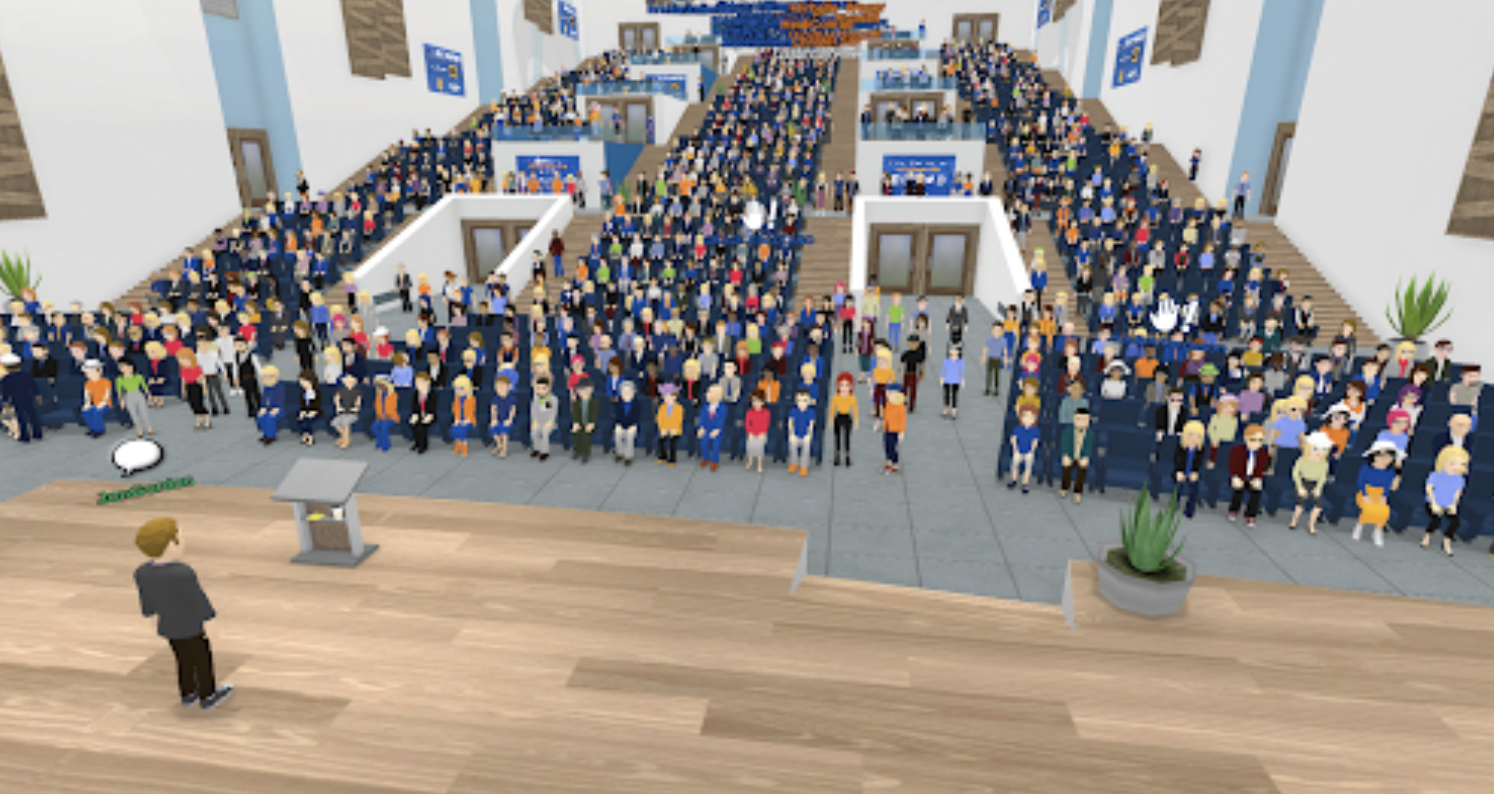
“It’s a different experience than Zoom. It looks like what we have here provides a very different experience from a psychological standpoint,” said Lucas-Conwell “Because you don’t see the person, you don’t see what they look like, you don’t see their age, and you don’t see their gender.”
Kaplan agreed. He said with the metaverse experiences his company creates, some of the personnel challenges found in the traditional workplace are actually being eliminated. Users of Virbela’s virtual reality platforms can connect at scale across global regions and operate in spaces that are secure and privatized to their organizations only. Everyone online is identifiable by real credentials and their interactions are traceable, features that add credibility and transparency to communications.
At the same time, each user has the benefit of being represented by a unique avatar, which can be less stressful and intimidating than appearing on screen in real life. At Virbela, Kaplan said his team works in virtual offices five days a week. He appreciates that he can personalize his own office space and if employees have questions, they can approach him in his virtual office and speak with him directly. It’s a more synchronous conversation versus an employee messaging him on Slack, and he feels more connected.
New Potential for Teamwork and Leadership in Virtual Spaces
From a human resources perspective, the metaverse has potential to provide immense benefits for both an employer and employees alike. Activities such as job fairs, hiring events, interviews, and employee training are just some of the things possible in the space. And according to Kaplan, hosting these activities in the metaverse is a great way to demonstrate that your company is innovative and has better technology than others—a competitive advantage.
Lucas-Conwell agreed and said he thinks much more immersive experiences in terms of organizational and managerial needs can occur in the metaverse. For example, from a virtual meeting space, he could project slide decks on walls, comment on those slides, invite people to make comments, and share screens. There is potential, he stated, to learn more about people and teamwork, mentoring and coaching, and growing more resilient organizations.
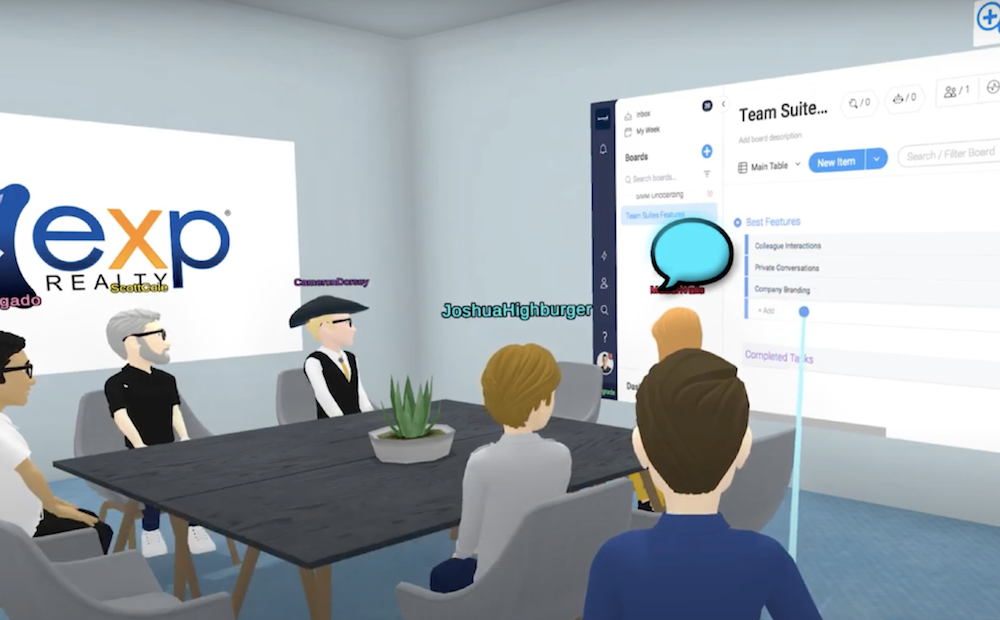
There’s a different kind of value to having a virtual space open for employees, according to Kaplan. It’s an unobtrusive way to visualize each other. And since team members from any geography have access to the space, he said a diversity of perspective is gained, which drives innovation.
“You can walk up to the leadership floor, knock on the virtual door, and say hello to the CEO. You can do that in this environment,” Kaplan said. “You can actually create personal human-centric relationships at scale because of the accessibility of the platform from anywhere in the world.”
Cost Savings Proven for Business Enterprises in Virtual Reality
When it comes to cost savings and scalability, there’s something profoundly different about what the metaverse can do for an organization in terms of conferences and events. Historically, people have always met face-to-face; conference center rooms had to be rented, flights arranged, and hotel rooms booked. On top of those expenses, there were meal costs, taxi fares, and other usual travel expenses. Whether or not the pandemic changed this in-person dynamic, organizations choosing to go virtual with activities are achieving significant cost savings in addition to gaining better participant reach that’s able to cross time zones and geographies.
On this note, Kaplan gave an example of the value realized by a client when they went virtual:
“There was a 1,000-person sales kickoff in Europe. They told me they usually spent $250,000 just on the event planner. And then hotel and conference rooms for 1,000 people; it’s $1 million dollars in general travel and hotel accommodations for 1,000 people,” he said. “Our entry-level campus starts at $250,000 a year, and that’s for a capacity of about 500. You have paid for a year’s worth of access, so you could do that event every day of the year because you have access 24-7 to the campus, plus you have all the other values.”
“I finally invent something that works!” — Back to the Future
GRI Envisions the Future of Hybrid and Remote Work
Stating that large companies will have some big advantages and benefits, Lucas-Conwell envisioned how organizations could begin using the metaverse very quickly. He said if a larger client of Growth Resources, Inc. asked, his company could run their GRI presentations and sessions and gauge discussions in a different way than how they’ve been doing them through Zoom and in-person. It would be a different learning and teamwork experience.
In consideration of what participants learned at this future-focused session of GRI Summit 2022, Lucas-Conwell concluded that organizations are now operating in a world open to hybrid work, but also in a world where employees need better well-being initiatives, understanding, and reflection from their leaders and colleagues. And the metaverse may just be the place for all of it to happen in.
The GRI (Growth Resources & Indicators) helps leaders grow more purposeful and performing organizations, with nuanced information about people beyond intuition, online tools, and a unique coaching and mentoring process that accelerates the development of leadership skills. The GRI is used in a broad range of applications including hiring, interviewing, team building, well-being, resilience, and organizational development.
Personality has been studied for centuries. Only recently with the progress in social science from the 1900s has it been intensely researched. We now know about core behavior factors and the needs of organizations. How do people get motivated? How can they adapt? How do leaders and managers play a central role in building the performance of their company? The GRI was started in 2012—based on this abundance of modern personality and organizational behavior research, and decades of practice in leadership development—to provide new and effective answers to these questions. It is deployed in companies and supported by Growth Resources and its affiliates.
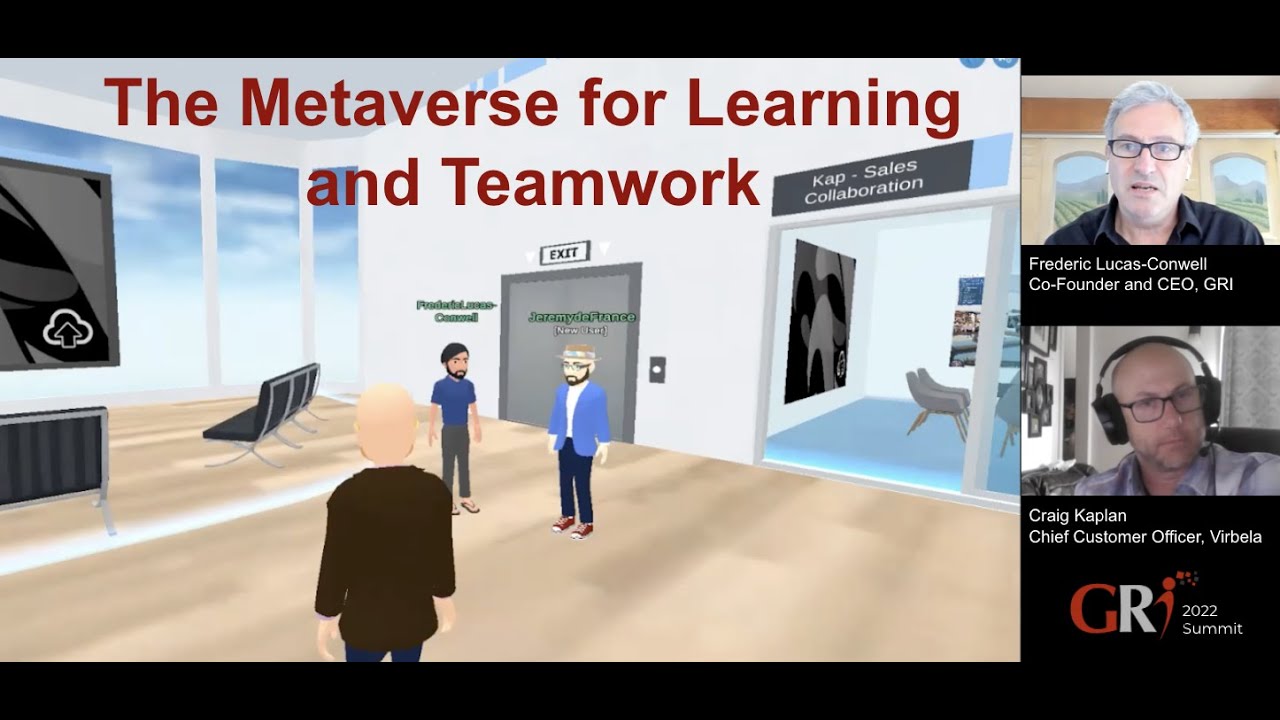
Listen to the event on Youtube here.
Please contact us today at contact@gri.co to learn more about how the GRI can work for you and your company.
Latest Articles
Groupama Successful Transformation in Romania: The GRI, Catalyst for Profound Change
The history of Groupama in Romania is an eloquent testament to resilience, strategic vision, and the transformative impact of innovative management tools. Arriving at the...
Hybrid Work: A Management Revolution
The COVID-19 pandemic has acted as an unprecedented catalyst, radically transforming our approach to work. What was once a marginal practice has become the norm for many...
Leadership 3.0: Objective Insights for People-Centric Leaders
Steve, a brilliant entrepreneur, poured his heart into his work. His team at "Innovatech" was on the brink of a major breakthrough, a new app that promised to revolutionize...


